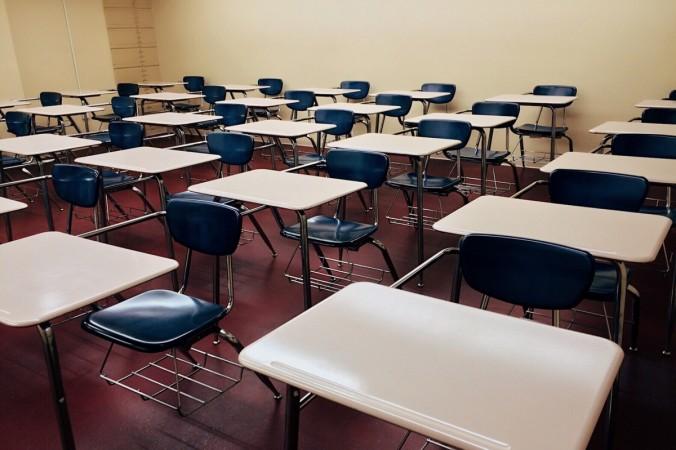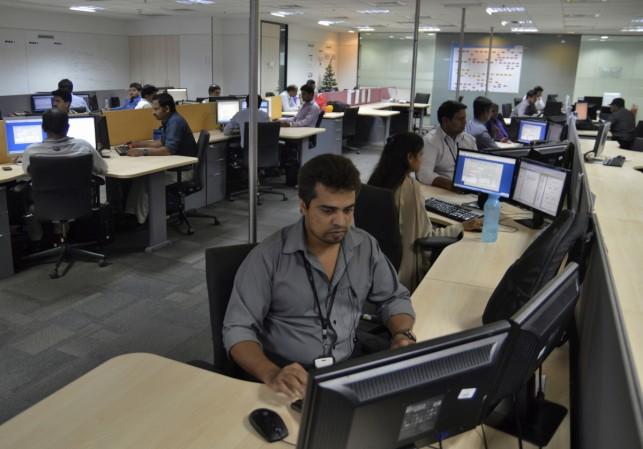
The All India Council for Technical Education (AICTE), from next year, is planning to close down over 800 engineering colleges that recorded student enrollment of less than 30 percent of the total seats for five consecutive years.
AICTE chairman Anil D Sahasrabudhe told The Hindu, "Students can be shifted to engineering colleges in the vicinity that have sufficient student strength."
The decision was taken following several rounds of discussions and after examining data from colleges from different states, he added.
Also Read: '23 fake universities, 279 fake technical institutes across India,' says UGC
"We compared the figures for the total intake and the admissions made for five years, and made a list of colleges that need to be shut down," Sahasrabudhe explained.
As per data, around 150 colleges are shut down every year as they fail to comply with AICTE rules. Colleges have to be closed if they are found lacking in infrastructure facilities as stipulated by the council. Students' enrolment rate as low as 30 percent of the total seats for five consecutive years could also lead to the closure.
Engineering courses losing sheen?
The number of seats lying vacant in colleges across the country are soaring every year as the demand for engineering is on the wane. There are 10,363 engineering colleges in the country.
Over 29,000 seats had no takers in Karnataka alone in the academic year 2017–18.
![A construction technician on duty [representational image] engineering](https://data1.ibtimes.co.in/en/full/660629/engineering.jpg?h=450&l=50&t=40)
An official from the department of technical education, Karnataka, attributed the reason for such a large number of vacant seats to the lack of adequate infrastructure in colleges.
Even reputed colleges are approaching the AICTE to stop admissions into certain streams that are not very much in demand, he added. Interestingly, despite the dismal enrolment rate, AICTE continues to receive applications from managements of several institutions for starting new engineering colleges.
There is no need of AICTE's intervention, says an official from the department of technical education. The managements would eventually close the colleges down as per the change in demand.
"Progressive closure" requests soar
"Telangana, Uttar Pradesh, Maharashtra, Andhra Pradesh, Rajasthan, Tamil Nadu, Haryana, Gujarat and Madhya Pradesh have the maximum number of colleges which have sought progressive closure," TOI reported, citing AICTE data.
Many private engineering colleges are either seeking for progressive closure or opt for turning the existing onces into polytechnics or science and art colleges. Progressive closure is the process of closing it down the college gradually by stopping admissions to the first year course. Once the permission for the progressive closure is granted, the existing batches of students will be allowed to continue.
Teacher training, compulsory internship
The technical council is also planning to give training for teachers to equip them for the changing times. According to Sahasrabudhe, the faculty in engineering colleges are MTech or PhD holders who usually lack experience in teaching aspiring engineers.

"Now onwards, any engineering lecturer joining anew, will have to undergo six months of exclusive and compulsory training so that they can train future engineers better. Existing engineering lecturers have three years to undergo this training compulsorily," Sahasrabudhe said.
AICTE wants to groom students industry–ready. For that, even second and third year students will have to undergo compulsory internship even before the campus placements from this year onwards.
"Internship is the time when most students are observed by companies and have a fair chance of being absorbed. So it's better to be hired that way instead of depending on just five minutes of interview at campus placements. My advice to budding engineers is that they should be attentive and hardworking during internship," the chairman told TOI.








